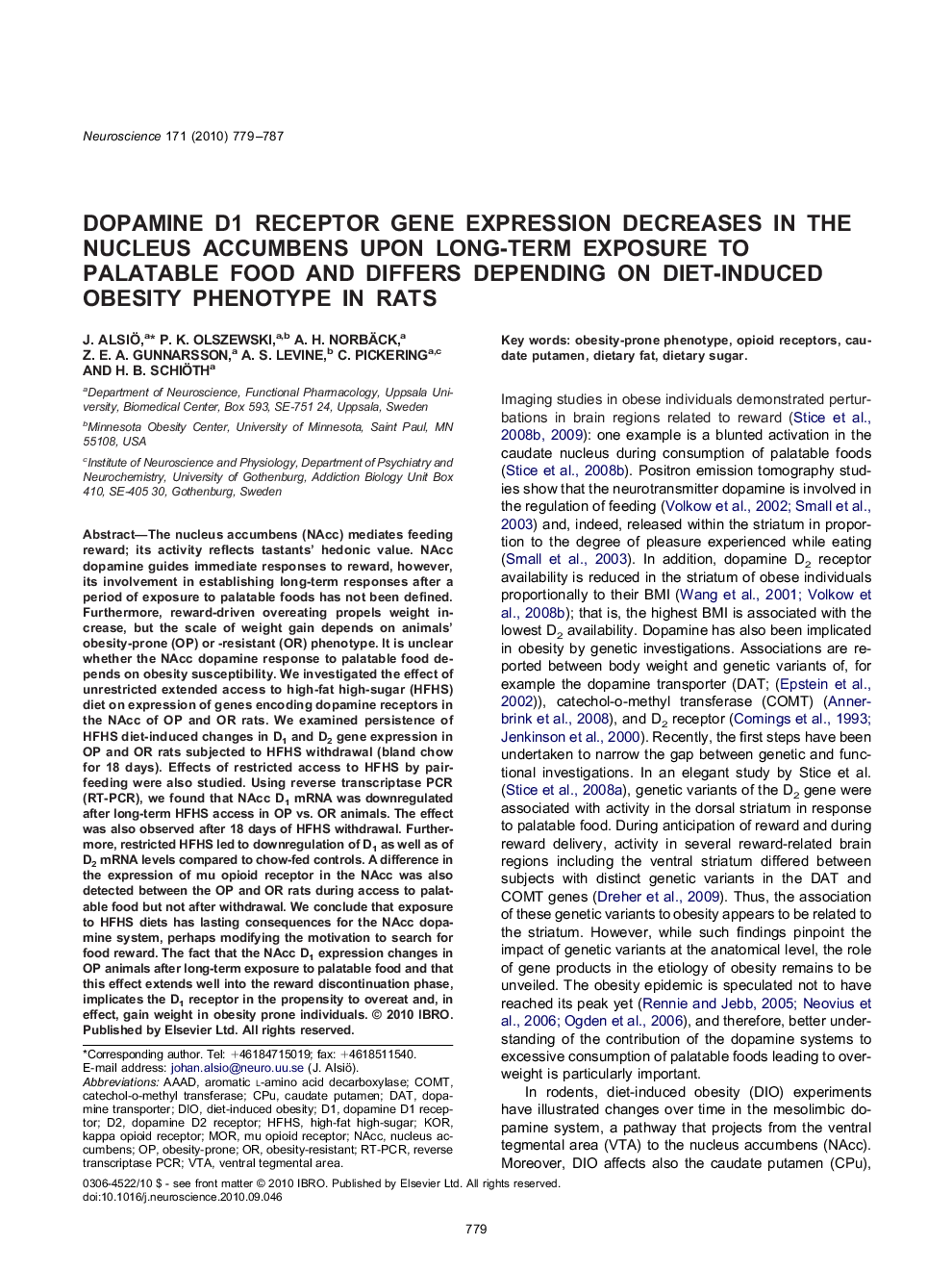| کد مقاله | کد نشریه | سال انتشار | مقاله انگلیسی | نسخه تمام متن |
|---|---|---|---|---|
| 4339248 | 1295740 | 2010 | 9 صفحه PDF | دانلود رایگان |

The nucleus accumbens (NAcc) mediates feeding reward; its activity reflects tastants' hedonic value. NAcc dopamine guides immediate responses to reward, however, its involvement in establishing long-term responses after a period of exposure to palatable foods has not been defined. Furthermore, reward-driven overeating propels weight increase, but the scale of weight gain depends on animals' obesity-prone (OP) or -resistant (OR) phenotype. It is unclear whether the NAcc dopamine response to palatable food depends on obesity susceptibility. We investigated the effect of unrestricted extended access to high-fat high-sugar (HFHS) diet on expression of genes encoding dopamine receptors in the NAcc of OP and OR rats. We examined persistence of HFHS diet-induced changes in D1 and D2 gene expression in OP and OR rats subjected to HFHS withdrawal (bland chow for 18 days). Effects of restricted access to HFHS by pair-feeding were also studied. Using reverse transcriptase PCR (RT-PCR), we found that NAcc D1 mRNA was downregulated after long-term HFHS access in OP vs. OR animals. The effect was also observed after 18 days of HFHS withdrawal. Furthermore, restricted HFHS led to downregulation of D1 as well as of D2 mRNA levels compared to chow-fed controls. A difference in the expression of mu opioid receptor in the NAcc was also detected between the OP and OR rats during access to palatable food but not after withdrawal. We conclude that exposure to HFHS diets has lasting consequences for the NAcc dopamine system, perhaps modifying the motivation to search for food reward. The fact that the NAcc D1 expression changes in OP animals after long-term exposure to palatable food and that this effect extends well into the reward discontinuation phase, implicates the D1 receptor in the propensity to overeat and, in effect, gain weight in obesity prone individuals.
Research Highlights▶Long-term restricted access to a high-fat high-sugar diet reduces D1 and D2 receptor mRNA in the NAcc. ▶D1 receptor mRNA is reduced in the NAcc of obese rats after free access to high-fat high-sugar diet. ▶Dopaminergic mRNA profile of obese rats persists long after removal of high-fat high-sugar diet.
Journal: Neuroscience - Volume 171, Issue 3, 15 December 2010, Pages 779–787